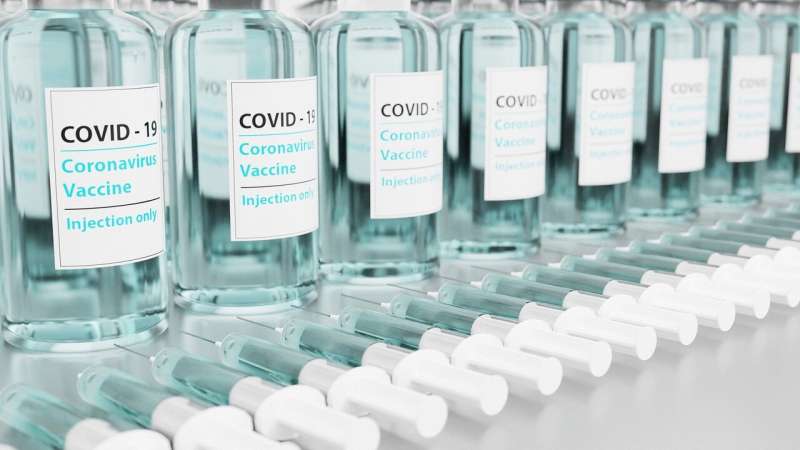
Vaccine hesitancy continues to be a hurdle in the development of widespread immunity within the U.S. population as the COVID-19 pandemic enters its second year.
Researchers at the University of Cincinnati College of Medicine have developed a computerized decision analytic model to compare projected outcomes of three vaccine strategies: a patient opts for a messenger RNA vaccine, a patient decides to get an adenovirus vector vaccine or the patient simply forgoes a vaccine altogether.
Pfizer and Moderna produce mRNA vaccines while Johnson & Johnson manufacture an adenovirus vector vaccine. The decision analytic model uses a metric of quality adjusted life expectancy that accounts for both survival and quality of life as affected by hospitalization, COVID-19 disease and long-term post-infection complications on a patient, also commonly known as long-haul syndrome, explains Mark Eckman, MD, director and professor in the UC Division of General Internal Medicine and lead author of the study.
The model simulated the health outcomes for a 65-year-old and found the patient would gain a net of 7.4 days—an extra week of life—if the person received the mRNA vaccine versus opting to not vaccinate at all. Of the two strategies that include receiving a vaccine, both yield virtually equivalent results, with the mRNA vaccine demonstrating a minimal gain of roughly one day of life compared with the J&J vaccine, says Eckman.
The study findings are available online in the journal Medical Decision Making Policy & Practice. Other co-authors include Richard Lofgren, MD, President and CEO of UC Health, and faculty members in the UC Department of Internal Medicine: Margaret Powers-Fletcher, Ph.D., assistant professor; Jennifer Forrester, MD, associate professor; Carl Fichtenbaum, MD, professor and George Smulian, MD, professor.
“The important point is that both types of vaccines are better than no vaccine,” says Eckman, also a primary care physician at UC Health, the UC affiliated health system that teaches and trains residents, medical students and other students in health care professions. “If we take a public health perspective by multiplying that gain over the vaccine eligible population, it results in a large net benefit for the nation.”
Eckman says if the U.S. extends the per person benefit to the remaining unvaccinated and eligible population (individuals 12 years old and up) in the country, the aggregate benefit would be 3.92 million quality-adjusted life years for those receiving an mRNA vaccine. If the aggregate benefit were calculated using the J&J vaccine it would result in a net benefit of 3.38 million quality-adjusted life years.
Source: Read Full Article



